Ecosystems
-
 Animals
AnimalsDrowned wildebeests can feed a river ecosystem for years
Only a small percentage of wildebeests drown as they cross the Mara River, but they provide resources for the river ecosystem for years after their deaths.
-
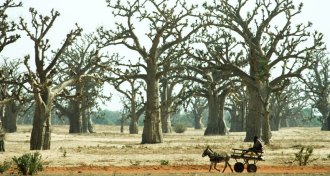 Ecosystems
EcosystemsEarth’s dry zones support a surprising number of trees
A Google Earth-based estimate of dryland forests adds serious leafage to Earth’s total tree count.
By Beth Geiger -
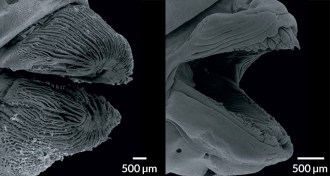 Animals
AnimalsBig slimy lips are the secret to this fish’s coral diet
A new imaging study reveals how tubelip wrasses manage to munch on stinging corals.
-
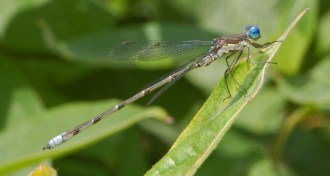 Climate
ClimateHigher temperatures could trigger an uptick in damselfly cannibalism
Experiments in the lab suggest that increases in temperature could indirectly lead to an increase in cannibalistic damselfly nymphs.
-
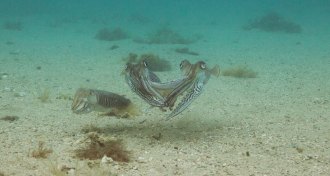 Animals
AnimalsWatch male cuttlefish fight over a female in the wild
For the first time, researchers have observed the competitive mating behaviors of the European cuttlefish in the field.
-
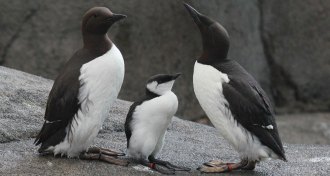 Animals
AnimalsSeabirds use preening to decide how to divvy up parenting duties
Seabirds in poor condition may communicate this information to their partner by delaying or withholding preening.
-
 Climate
ClimateLakes worldwide feel the heat from climate change
Lakes worldwide are warming with consequences for every part of the food web, from algae, to walleye, to freshwater seals.
-
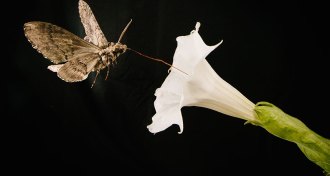 Ecosystems
EcosystemsHawk moths convert nectar into antioxidants
Hawk moths use their sugary diet to make antioxidants that protect their muscles.
-

-
 Ecosystems
EcosystemsVolcanic eruptions nearly snuffed out Gentoo penguin colony
Penguin poop dumps data on how a Gentoo colony responded to ancient volcanic eruptions.
-
 Ecosystems
EcosystemsVolcanic eruptions nearly snuffed out Gentoo penguin colony
Penguin poop dumps data on how a Gentoo colony responded to ancient volcanic eruptions.
-
 Climate
ClimateThe Great Barrier Reef is experiencing a major coral bleaching event right now
A second coral bleaching event has struck the Great Barrier Reef in 12 months, new observations reveal, raising concerns about the natural wonder’s future.